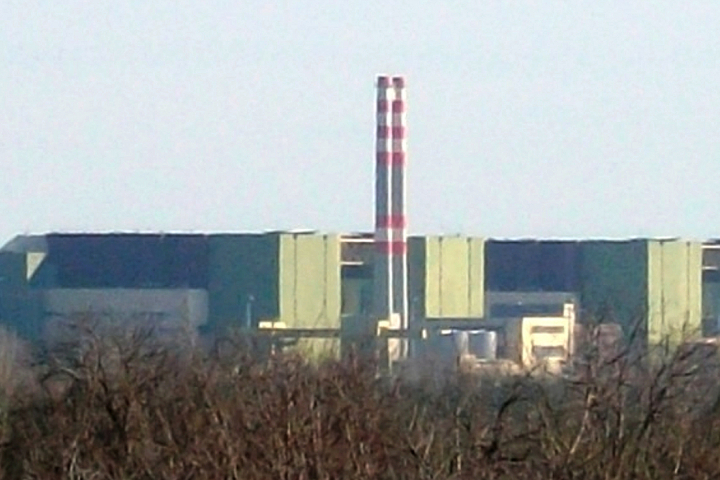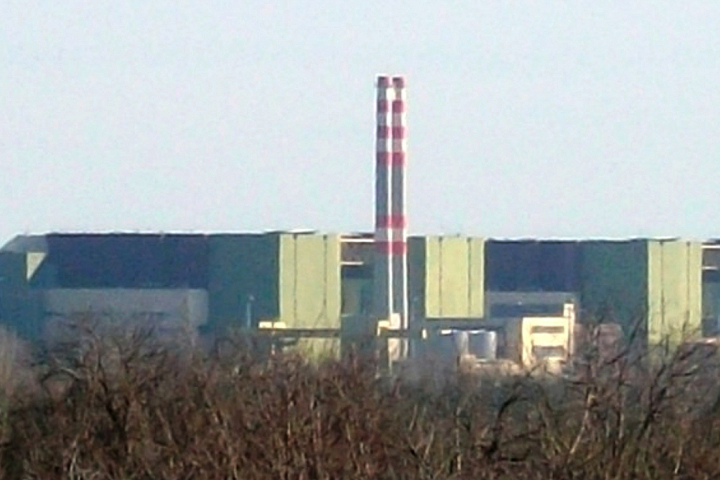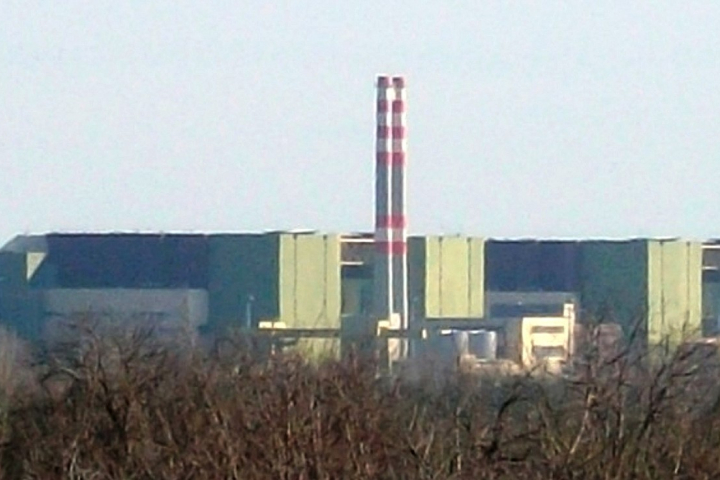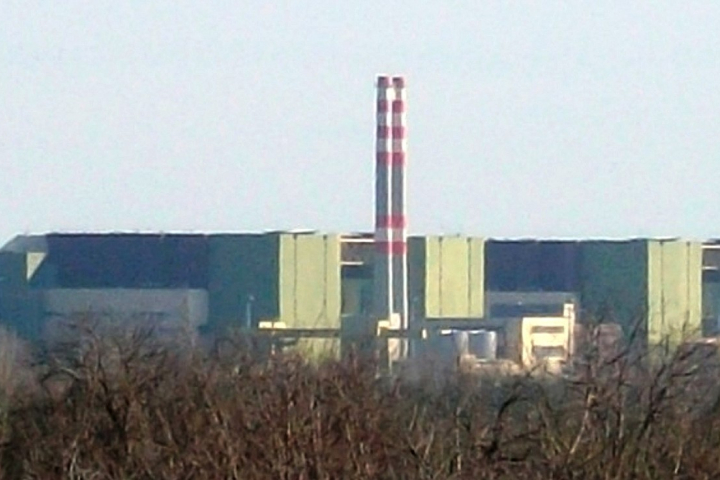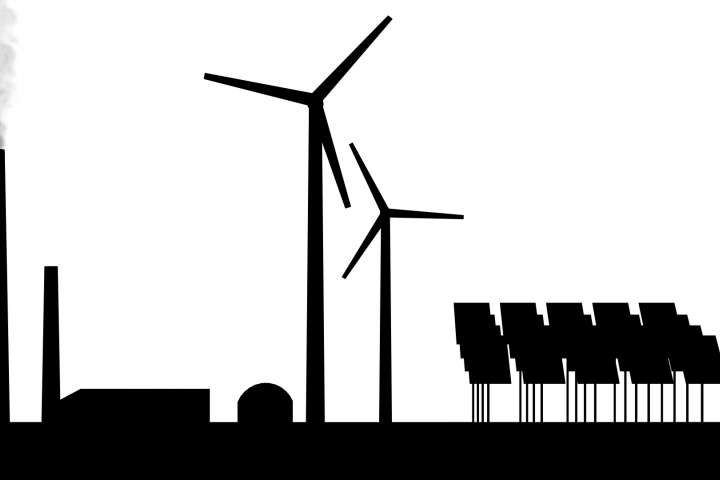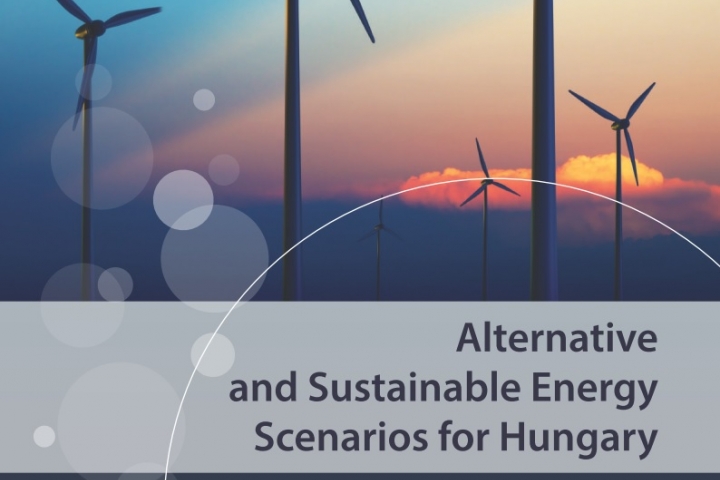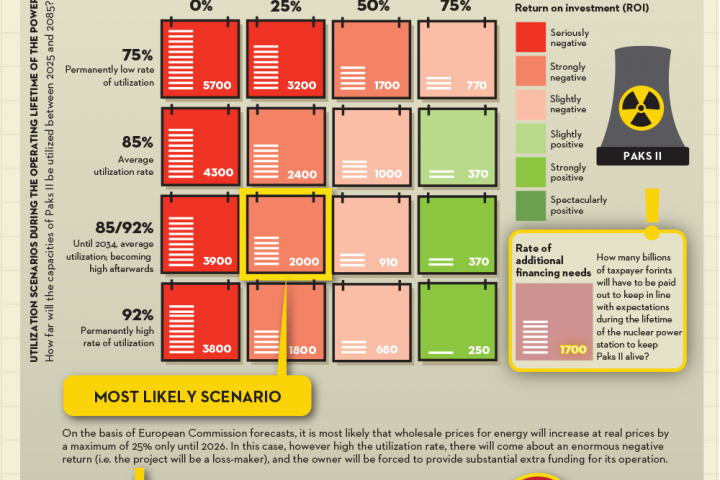The Paks Diaries - March 2024
Although the same promises were made in Budapest and Sochi, a mistake slipped into the communication about the Paks II project. Meanwhile, Paks I has again suddenly lost half its output.
In the sea of endless promises of recent years, a small wave of turbulence was created when in mid-March the economic news portal Világgazdaság reported that the date for the start of the Paks II power plant could be delayed by a few years compared to the early 2030s, as recently suggested. The newspaper, which is always well-informed about the Paks issue from government sources (and which has a dedicated author for the Paks project, Lilla B. Horváth), has now written that a starting date of 2033-2034 seems more likely, and that Alexei Likhachev, could sign the necessary contract amendment on his visit to Hungary. The experienced energy journalist and the news site were immediately 'corrected' next day by Foreign Minister Szijjártó, who said that the target date remained the same as 2032, as recently announced by Energy Minister Csaba Lantos. The goal, the minister said, is "to connect the two new blocks to the Hungarian energy grid at the beginning of the next decade".
According to a statement by his ministry, Szijjártó, the minister responsible for the Paks nuclear power plant project said this at a press conference with Alexei Likhachev, who was back in Budapest, but it is still worth reflecting on what happened. Where did the author of the news site - who had previously achieved the feat in the Hungarian press of conducting an exclusive interview with the head of Rosatom for two newspapers at the same time - get his information from? But it is equally "interesting" how such sensitive information could have been published in a pro-government newspaper? For example, it is a logically flawless argument on the part of the journalist that since the Hungarian Atomic Energy Authority (HAEA) has recently issued several decisions at the request of the investor (Paks II Ltd.), in which it extended the validity of the permit for several project elements by three years, this makes further delays in the respective work phases likely - which could ultimately influence the finish of project.
Just two weeks later, at the end of March, Szijjártó visited Russia again. From Sochi, he once again communicated that the Paks II project is moving ahead unabated. At the Atomexpo, the Minister promised the "pouring of first concrete" by the end of this year, and with the thoroughness of a production report, he also repeated that the Russian investor had already produced the zone melt trap, which would soon be transported to Paks. He also said that the production of the reactor vessel could start in April and that it could be delivered to the target site in October this year. The news site Népszava added a commentary to the picture reported from Sochi, which is essentially the same as what we repeatedly reported in the previous monthly summaries of the Paks diaries. That the pouring of first concrete, i.e. the official start of construction of the nuclear power plant, is delayed because HAEA has still not assessed the preliminary safety report of the Paks II project. This, which has been the case for more than a year, was again confirmed by the nuclear authority to the news site. However, the HAEA now added that "our decision is taken independently, without influence, based on the fulfilment of legal requirements, on which we do not give prior information". Anyway, this means that the construction of Paks II has still not started.
As the investor reported on the Paks2.hu project portal, only preparations for the first concrete pour are carried out, including a mock-up test at the end of March. This means that a "mock-up" of the reactor building's base plate - a 4x8x3 m concrete block - has been built, which is subjected to various material testing protocols and tests.
Portfolio, one of the most important industry conference organisers, held energy and construction conferences in March and April, where not only the key players of industry, but also government representatives participate. However, only the construction forum had a speaker about Paks II. Gergely Jákli, CEO of Paks II Ltd only spoke about what Péter Szijjártó had already said in Budapest and Sochi. The only new element of Jákli's presentation was that companies to be involved in the project "can gain good references in the nuclear industry" and that the success of Paks II "will give them a good chance to compete not only in the neighbouring countries, but also as suppliers for nuclear power plant projects in Europe and worldwide". However, potential suppliers have to be careful about the last point, because the Russian project, once it reaches the construction stage, will certainly be a unique project in the EU in the sense that none of the EU member states are planning to use Russian nuclear technology. As a result, firms with such credentials will not be sought in the EU, because (if the continent does indeed see a large-scale nuclear construction frenzy by 2030) there will be demand for firms familiar with US, South Korean and French designs. In addition, the current poor EU-Russia relations do not seem to indicate that companies with a 'Russian background' would be allowed near any EU nuclear projects.
In the meantime, the potential risk described in the Paks Diaries in February already occurred in March in the Paks I NPP. One of the four units (Paks 4) was not operating due to a regular overhaul (which meant a 500 MW loss in the system between late February and mid-April), and during this another unit (Paks 1) shut down automatically, which halved the nominal Paks production level (2000 MW). In fact, as reported by Free Europe, on 25 March, the plant's production did not even reach 900 MW during the day. What is even stranger is that neither the plant, nor the HAEA provided any information on the reason for the outage. In fact, although a parliamentary question was raised, the response from the Minister of State for Energy, Zsófia Koncz, did not answer the questions. The reason for the outage was not revealed by MVM Paks Nuclear Power Plant Ltd either. They only published two days after the start of the outage that unit Paks 1 had been repaired and connected to the grid again. Meanwhile, on 25 March and 31 March, the production of the other two Paks units, which were running smoothly at the time, had to be reduced due to the high production of solar panels.
Energiaklub continues to oppose the Paks II project, which is based on an outdated and expensive technology involving environmental and geopolitical risks and would tie down the Hungarian energy system in a constantly changing era full of technological innovations. Nuclear energy should be phased out in Hungary after the lifetime extension of Paks I. The lifetime extension can only be accepted if it fully complies with sustainability, economical, nature protection and energy security principles. If extended, it must not be used as an argument or coercion against the expansion of renewables becoming a strategic priority.
